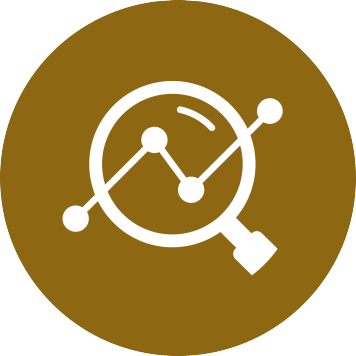Method-specific competencies
Knowledge and application of methods to make sense of, and operate in, any context
Each competency below provides a general definition and describes learning outcomes regarding knowledge, skills, and attitudes.
Explore these competencies

Ability to break down processes and systems into parts while understanding their interaction
Knowledge description
- Knowledge of processes of data collection as well as of data analysis
- Information literacy and numeracy
Skills description
- Ability to gather information or data to understand a problem
- Ability to distinguish relevant from irrelevant information
- Ability to break down a problem into basic elements
- Ability to identify critical connections and patterns in verbal and numerical data
- Ability to make inferences to fill gaps in information in order to continue analysis
- Ability to draw sound conclusions based on analysis and experience
Attitudes description
- Be aware of limitations of own arguments and analyses and apply critical judgment in evaluating them

Ability to define a decision and a set of alternative actions from which to choose
Knowledge description
- Knowledge about decision-making processes and tools
- Knowledge of bias, risks, and evaluation techniques in decision-making
Skills description
- Ability to recognise a decision-making problem as such
- Ability to phrase alternatives
- Ability to evaluate alternatives and choose among them
- Ability to make a decision also in case of incomplete information
Attitudes description
- Minimise bias, risks and uncertainties when making decisions
- Be aware of the way emotions can affect the evaluation of alternatives

Ability to access, evaluate, and use media and digital technology
Knowledge description
- Media and digital technology literacy
- Understanding how media and digital technologies can influence beliefs and behaviours
- Knowledge of ethical and legal aspects surrounding the access and use of media and digital technology
Skills description
- Ability to apply digital technologies to research and work safely and appropriately
- Ability to evaluate risks associated with media and digital technologies
Attitudes description
- Be aware of how media and digital technologies can influence beliefs and behaviours
- Minimise risks associate with the use of media and digital technologies

Ability to define a problem and find solutions for it
Knowledge description
- Knowledge of techniques and processes to tackle problems
- Knowledge of elements of both ill- and well-defined problems
- Understanding of how diverse views can affect the problem-solving process
Skills description
- Ability to define a problem
- Ability to use resources and techniques to solve a problem
- Ability to delineate possible solutions to a problem
- Ability to evaluate solutions and choose from among them
- Ability to implement solutions to resolve problems
Attitudes description
- Recognise the critical role of persistence and be comfortable with adopting a ‘can do’ approach when tackling problems
- Be comfortable with solving non-familiar problems

Ability to manage projects and produce results
Knowledge description
- Knowledge of processes, techniques and tools for effective and efficient project management
Skills description
- Ability to plan milestones and activities
- Ability to prioritise among goals and activities
- Ability to align a project with the requirements and values of own institution
- Ability to produce results
- Ability to choose between traditional and agile project management models and apply them appropriately
Attitudes description
- Be forward thinking when planning projects, milestones, and tasks
- Be accountable for the use of resources, actions, and results
- Think economically when developing projects
Integrating method-specific competencies
Thanks to good method-specific competencies, students can access information from their studies and use it to make sense of a subject, work, or life. Method-specific competencies can help our students validate or integrate existing and new knowledge, organise knowledge, process it and finally use it to solve problems, make decisions or work on projects.

What employers, ETH alumni and employees say
Support students’ decisions through information
We are responsible for making information available to students, for example through information events, so that they can make an informed decision about their studies. Students, in the end, are responsible for their own decision-making.
Dr. Maddalena Velonà, Coordinator of studies D-MAVT
Foster complex problem solving
Academic exercises tend to take out some of the complexity of real world problems in terms of uncertainty, missing data, and gathering data from other stakeholders. I experienced this complexity through extra-curricular activities like Hack4Good.
ETH alumnus, BSc and MSc D-PHYS
Further readings
- external page call_made Developing transferable skills, 2020, Michael Page
- external page call_made Digital skills and the future of work: Challenges and opportunities in a post COVID-19 environment, 2020, ILO
- external page call_made Future of Work in the Digital Economy. Developing skills for Industry 4.0, 2020, RMIT University
- external page call_made Global Skills Index, 2020, Coursera
- external page call_made 5 ways to future-proof your career in a post-COVID-19 world, 2020, RMIT University
- chevron_right La Cara, B., Gemünden, M. & Koch-Kiennast, B. (2023). Fostering social and personal competencies in higher education: The ETH Competence Framework case, ETH Learning and Teaching Journal, 4 (1), 105-118.